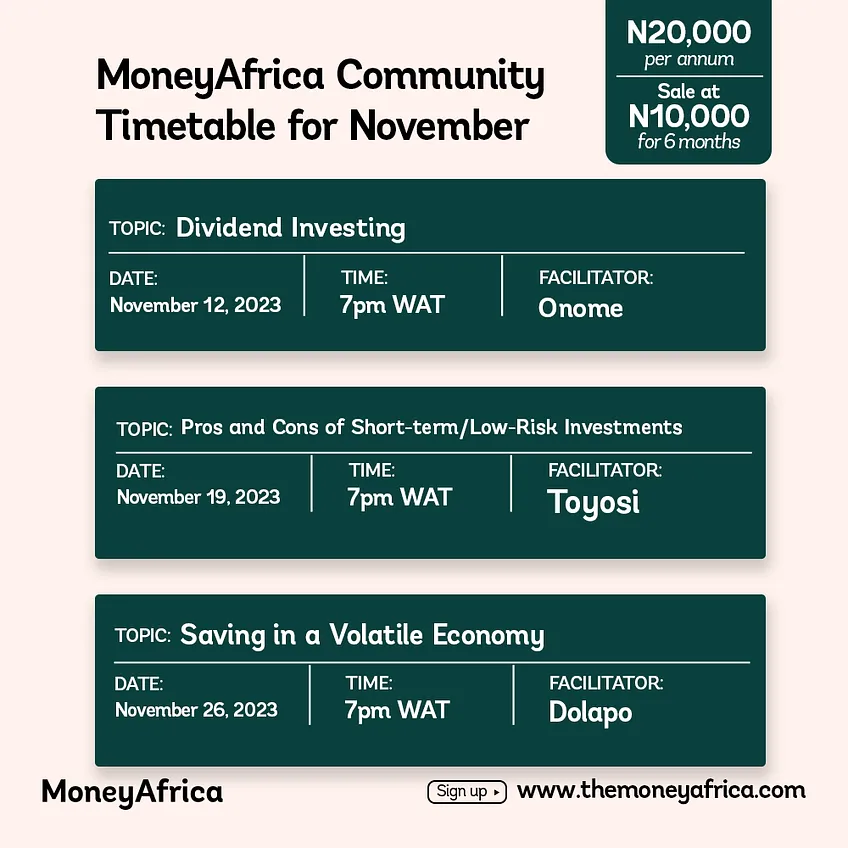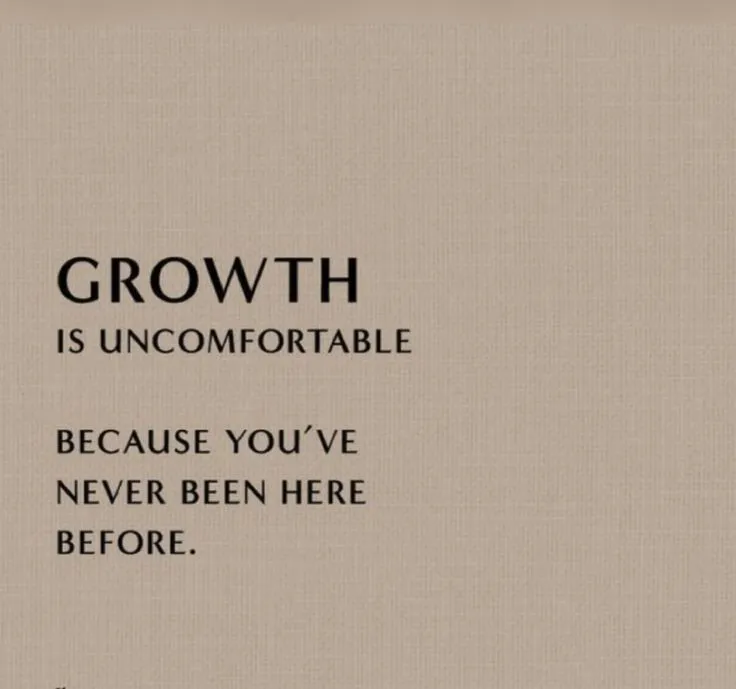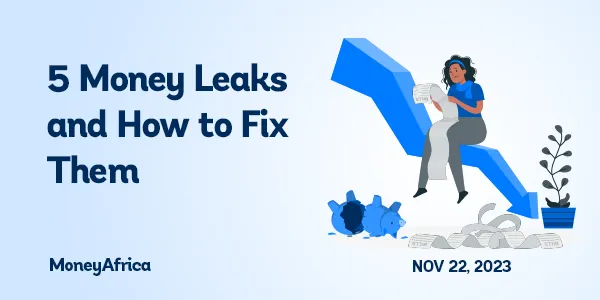Good Morning 😃
You know, sometimes we get so caught up in caring for others that we forget about ourselves. We thrive on the applause, messages, and the fulfilling impact our work brings. And you will agree with me that finding a job that offers a perfect blend of good pay, impact, and freedom is like hitting the jackpot.
So, here’s the gist: In June this year, I took a closer look at my budget, convinced that food had devoured a significant chunk of my funds, especially with all the buzz around Tinubu’s inauguration and the fuel subsidy removal back then. But, surprise! After printing out my bank statement and using a tracking app, the real culprit was revealed—personal development courses. I’ve got a basket full of courses, each one nibbled like apples. Lol! I know a lot of people are on this table with me. So I said to myself, I won’t pay for another course until I’m done with the ones I bought.
Let’s turn the spotlight to you. What do you think is causing financial leaks in your life? Whether it’s impulsive purchases, black tax, or the foodie in you, today’s article shares five tips to plug those leaks and reclaim control of your finances.
- Impulse Spending: One day, I asked myself a crucial question: If my account were empty, would I still indulge in impulse purchases? The answer, I believe, is a resounding “No.” The temptation to spend recklessly often stems from having surplus cash. To counter this, identify and reduce unnecessary purchases. Establish a budget and adhere to it, giving priority to needs over wants. Only keep the required amount in cash for purchases and invest the rest in various assets. By doing so, you can steer clear of impulsive buying decisions.
- Unused Subscriptions: Review your monthly subscriptions. Cancel services you no longer use or need. This includes streaming platforms, gym memberships, or magazine subscriptions. Learn from my story.
- Eating Out Frequently: I once faced a situation while ordering food through a popular food delivery app. My initial order amounted to just N1,300, excluding the delivery fee. However, the app had a minimum order requirement of N1,500, prompting me to add an item I didn’t originally intend to order. Instead of proceeding, I canceled the order. This experience highlighted how frequent dining out can impact your budget. To save money, plan your meals, cook at home, and reserve eating out for special occasions or a limited number of days per week, tailored to your location.
- Ignoring High-Interest Debt: Many individuals find themselves deeply indebted in today’s challenging economic climate. Understandably, the struggle for survival is intense. To navigate this, refrain from borrowing for non-essential needs or liabilities; stick to your budget. Cultivate the habit of delayed gratification—only spend on what’s truly necessary. If you have high-interest debts, develop a strategic plan to address them promptly. Allocate more than the minimum payment, prioritise high-interest debts, and explore the option of debt consolidation. Taking these steps will contribute to your financial stability and alleviate the burden of high-interest debt.
- Unplanned Social or Aso-ebi: Honestly, we’ve all been caught in this web one way or another. But I know some of you must have made adjustments because I will always talk about it in my newsletter to you. Stay clear of aso-ebi or any unplanned social event that is not budgeted for. You can allocate a percentage monthly to things like this if you are a people person, but in the name of trying to prove that you’ve arrived, stop buying or attending every event. Your empty account at retirement will remind you of your unplanned bills.
Now, over to you: What money leaks have you identified in your financial journey? What steps are you taking to fix them?
Are you struggling to put your finances together and need to speak to a financial advisor, then send a mail or DM MoneyAfrica
To download Ladda for iOS, click on this.
To download Ladda for Android, click on this.
***
Would you like to know the state of your finances?
Take this test to see how you are doing financially
***
Do you know that we have our own podcast? It’s MONEYTALKS!💚
Here’s a link to listen to all the amazing episodes we have!
***
Thank you for reading Money Africa’s Blog.
Please feel free to share it.
Do you have any questions? You can send an e-mail to info@themoneyafrica.com or send a DM to any of our social media channels.
***
MoneyAfrica premium plan
Are you a mid to high-income earner? Do you find communities a bit too busy? You should sign up for our premium plan.

You can learn more about that here.
***
We often get questions regarding how to plan your finances to align with your relocation plans, especially for students seeking to further their studies. As always, we have heard you, and we have put together an e-book to help you navigate this. Follow this link, to get your FREE copy of the e-book: The Japa Encyclopedia.
***
Get our annual subscription and learn more about investing safely and building a solid portfolio in 2023.

Don’t forget to:
- Join our community, if you want to smash your 2023 financial goals. It takes at least 30 days to build great habits that will last you a lifetime. So why not start now? There is a lot you can achieve.
- If you would like to document your financial journey in 2023, then our journal would be an excellent fit for you. It costs ₦7,500 (excluding delivery).
- Get a budget sheet to track your monthly expenses. Click here
- Get an investment tracker to be on top of all your investments. Click here
MoneyAfrica is a financial literacy platform. Our goal is to make everyone better with their finances.
We do this by engagements via our:
– social media handles
– platforms for paid community members (for adults and students)
– webinar sessions with corporate clients
Would you like to join any of the communities? Please click here
Would you like us to hold a webinar for your company’s staff? Please send an email to info@themoneyafrica.com


